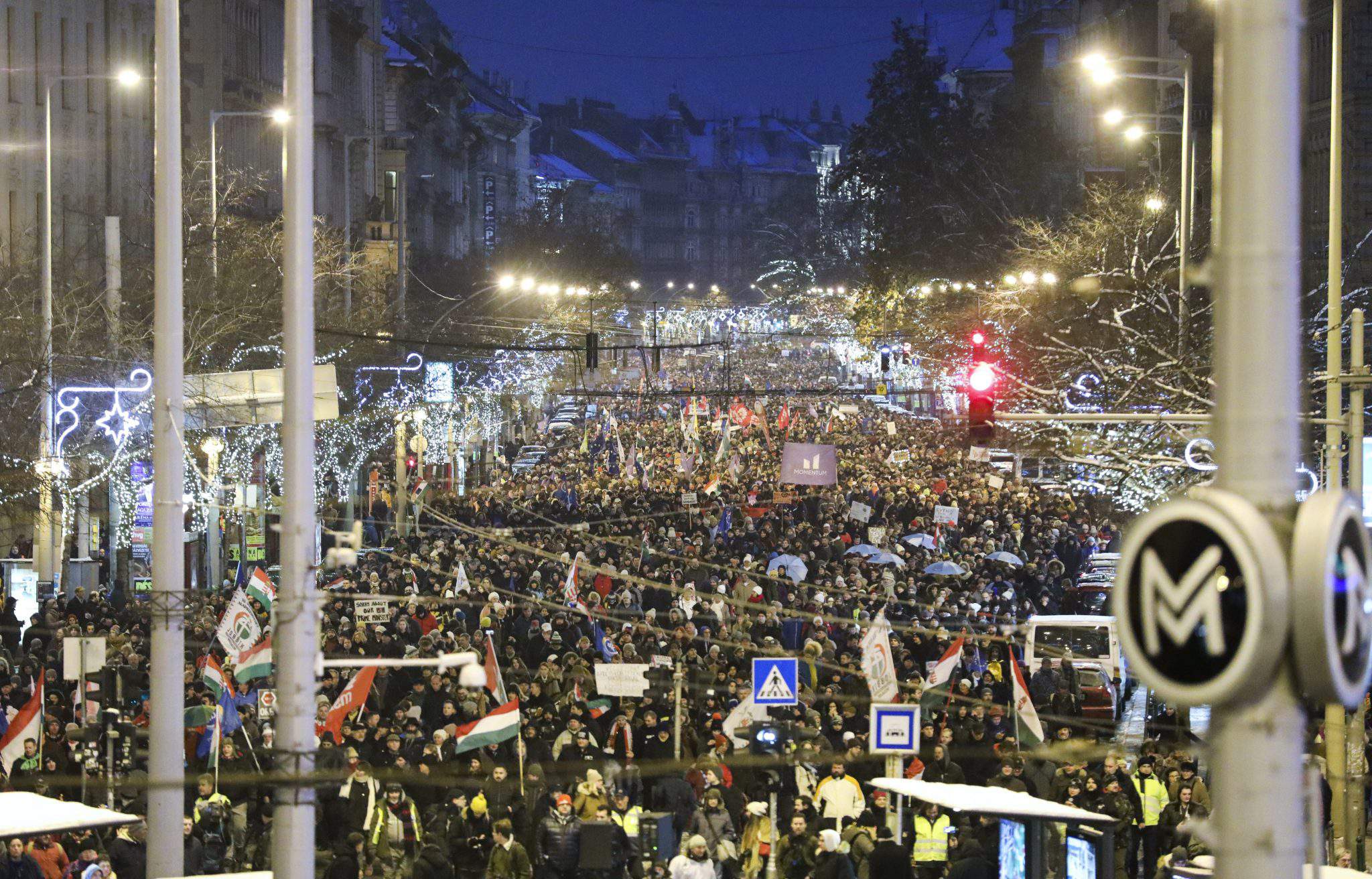Half of the world talks about the Hungarian anti-government protests
After the passing of the infamous “slave law”, tens of thousands of people marched on the streets to protest it and the Hungarian government in general. Several protests have been organised, but the biggest one was last Sunday, on 16 December. The protest made the news not only in Hungary but all over the world.
A series of anti-government protests have started after the government passed the so-called “slave law” which drastically increases the number of legal overtime an employer can demand from its employees: the government raised the upper threshold for annual overtime from 250 to 400 hours. The first demonstration was organised on 13 December. Since then, several protests followed all over Budapest, marching on the streets and arriving at different important locations in the capital.
These anti-government protests have been all over not only the Hungarian but the international media as well. Many world-famous journals have published articles about the Hungarian demonstrations.
Foreign media really turned their heads to the fourth and largest protest that was organised this Sunday, on 16 December.
British daily newspaper The Guardian published an article titled “Hungary’s ‘slave law’ prompts days of protest against Orbán” in which they wrote about the fourth protest that was going on in front of the state television headquarters on Sunday.
“As many as 15,000 people marched through Budapest on Sunday, ignoring subzero temperatures to register their discontent with the government. Police used pepper spray against demonstrators in a number of tense standoffs.”
The British journal also wrote about the politicians from the oppositional parties who got inside the building, demanding that their five demands be read on national television.
International news agency Reuters also wrote about the protests on Sunday. In their article titled ‘All I want for Christmas is democracy,’ say Hungarian protesters, they write that it was
“one of the biggest demonstrations Orban has faced since he rose to power in 2010 and began wielding his large parliamentary majority to pressure courts, media and non-government groups. The prime minister projects himself as savior of Hungary’s Christian culture against Muslim migration into Europe, and won a third straight term earlier this year. On Saturday, Orban’s ruling party Fidesz said “criminals” were behind the “street riots” and accused Hungarian-born U.S. billionaire George Soros of stoking the protests.”
Even The New York Times published a piece.
“Hungary’s democratic institutions, including reshaping the electoral system to favor his party and co-opting most of the news media in order to starve the opposition of exposure.”
The German Deutsche Welle and the BBC also reported about the Hungarian protests and people’s general dissatisfaction with Orbán’s government. The BBC emphasised how two Hungarian law-makers were thrown out of the building of the TV headquarters, and they also informed about what the protesters wanted and why Orbán thinks the reforms are necessary.
Featured image: MTI/Mohai Balázs
Source: www.theguardian.com; www.reuters.com; www.dw.com; www.bbc.com; www.nytimes.com
please make a donation here
Hot news
What happened today in Hungary? – 15 April, 2024
Foreign Ministers of Denmark and Hungary meet to discuss stopping illegal migration
Chaos on Deák: Hungarian influencers splash HUF 2 millions from rooftop – VIDEO
Constructive – Is Budapest party district set to undergo robust changes?
Shocking: hundreds serve life sentences in Hungarian prisons for brutal crimes
12 interesting facts about the Guinness World Records Children’s Railway Budapest





1 Comment
The media sources quoted all represent the same “liberal” agenda, and have form on their reporting of Hungary.